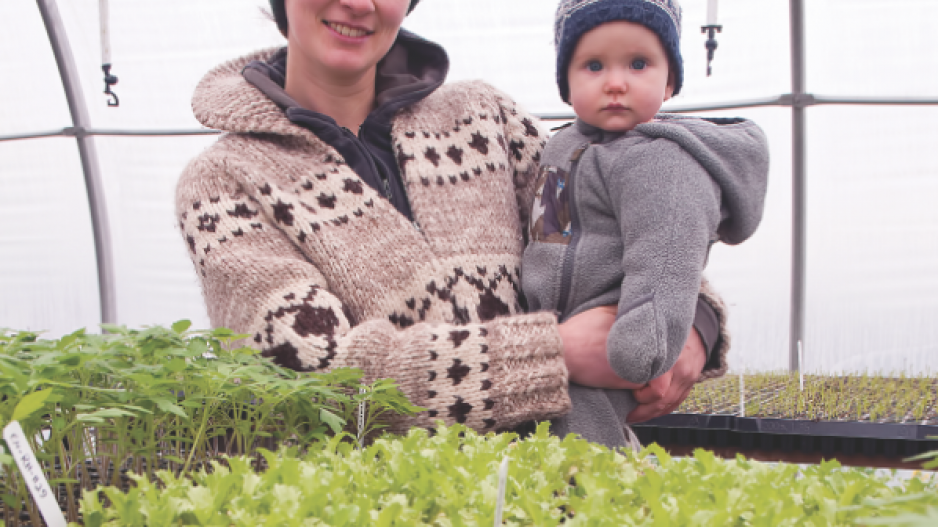Hewing to a strict organic food diet can increase your grocery bill by up to 50% and might have only marginal increased health benefits, according to a new study published in Science Advances by two researchers at the University of British Columbia (UBC).
And while there are some environmental benefits to organic farming, there can also be negative impacts.
But there are two important socio-economic benefits that consumers can feel good about if they continue to buy only organic produce: it avoids exposing farm workers to pesticides, and the premium that organics fetch is helping to pull the small family farm back from the brink of extinction.
Verena Seufert, a researcher with UBC’s Institute for Resources, Environment and Sustainability, and Navin Ramankutty, Canada Research Chair in Global Environmental Change and Food Security, analyzed the scientific literature on organic farming to evaluate its environmental and socio-economic pros and cons.
They concluded that, because Canada has relatively strict regulations on pesticide use, the health benefits of eating only organic food grown in Canada is “marginal.”
The health benefits increase when the organic food comes from a developing country that has fewer restrictions on pesticides. Most of those benefits go to the field workers who would otherwise be exposed to pesticides.
“One of the key conclusions from our study is maybe that some of the benefits of organics that consumers think of when they buy organic may actually not be that strong, while organic has some other benefits that maybe we don’t think about much,” Seufert told Business in Vancouver.
“For example, organic reduces the exposure of farm workers to pesticides, which is a huge problem, because our farm workers are exposed to high doses of these chemicals.”
Mischa Popoff, a former Canadian organic farmer who later became an organic farm inspector, thinks Seufert’s study is right on some key points, but he disagrees with the study’s conclusions on crop yields.
“Especially in Canada, you’re just sort of buying an idea,” said Popoff, who wrote a book called Is It Organic? “There’s no increased nutrition; there’s a slight decrease in pesticide exposure. But pesticide exposure is so low anyway, especially in Canada, what are you paying for? So on that point she’s bang on.”
Popoff disagrees with the study’s conclusion about low yields, however. So does Kevin Klippenstein, owner of Klippers Organics, which grows fruits and vegetables on a 40-acre farm near Cawston in the Okanagan.
The recent study concluded that there are environmental trade-offs to organic farming. On one hand, it can have a lower greenhouse gas (GHG) profile than conventional farming, because a lot of energy goes into making fertilizers and pesticides.
On the other hand, the study concludes that, because organic farming doesn’t use pesticides, crop yields can be, on average, 19% to 25% lower than in conventional farming. That means more land is needed, which can increase the GHG profile.
“We get inspected every year for organic certification,” Klippenstein said. “When we get our inspection done, they look at our yields … and our yields are always way higher than average compared to conventional.”
Popoff also thinks the report’s estimates about lower yields are too high. He thinks yields are not that much lower than in conventional farming, but says that’s because organic farmers are benefiting from the pest control done by neighbouring conventional farms.
He likens it to the herd immunity that benefits even those people who don’t believe in vaccinations: even those farmers who don’t use pesticides benefit from those who do.
“What all organic farmers and what Verena Seufert totally forget is that when you’re organic, you are benefiting from all the pest control going on around you,” Popoff said.
“The reason we don’t have locusts anymore is that conventional farming wiped them out.”
Despite some of her study’s findings, and despite the higher costs, Seufert said she buys organic food, primarily for social reasons.
She said 70% of small farmers in Canada often end the year in the red. The premium that consumers are prepared to pay for organic food means that small family farms can earn a decent living – farmers like Lydia Ryall.
Ryall, who has a degree in agriculture, owns Cropthorne Farm, a small 15-acre farm in Delta. She not only makes a living from farming herself, but also employs half a dozen people – none of whom are exposed to pesticides.
“We have a field staff of six or seven,” she said. “We employ up to 15 people during the season, on 15 acres. It’s basically one person per acre here, and out on the Prairies it’s probably one person for 20,000 acres.”
“Small-scale farming is not profitable in Canada,” Seufert said. “So, here, organic provides an advantage because it increases the profitability of farmers.”
Agriculture in B.C. has been on a growth trajectory in recent years. Exports of B.C. food, seafood and processed food products hit a record $3.8 billion in 2015. But organic farming remains a relatively small segment of B.C.’s agricultural sector.
According to the most recent Statistics Canada estimates, there were 569 certified organic farms in B.C. in 2011, which is just 3% of the total farms in B.C.
@nbennett_biv



